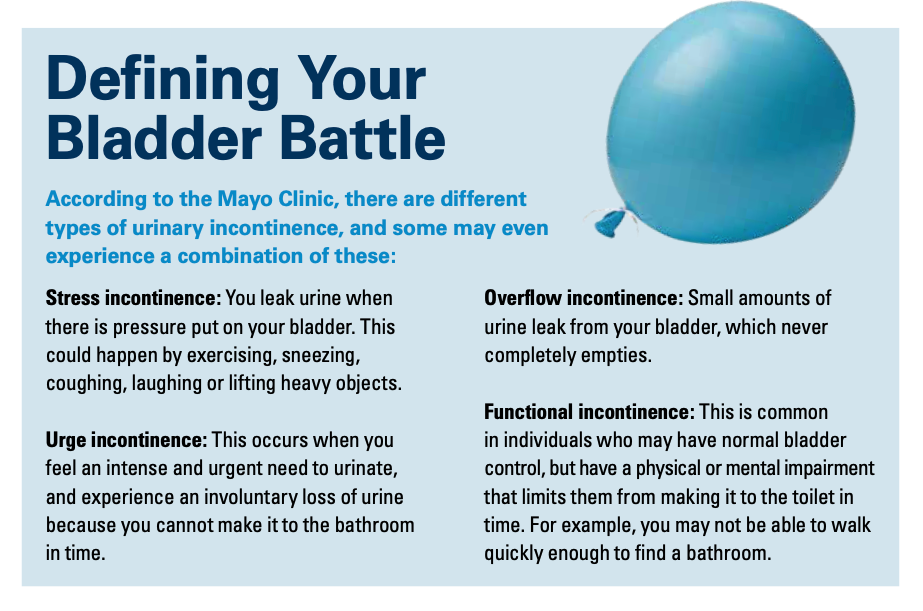For many older adults, it can be a challenge to make it to the bathroom in time.
Urinary incontinence — the loss of bladder control — is a common problem. Some people may only occasionally leak urine when they cough or sneeze, or while exercising.
And others may experience a more heightened case that has a big impact on their daily lives. Though common, urinary incontinence should not be an accepted part of aging. In most cases, it can often be treated, controlled or stopped.
Why does it happen?
Urinary incontinence occurs when the muscles located around the bladder aren’t working properly. According to the National Institute on Aging, this can be due to a variety of reasons, including underlying medical conditions or simply everyday habits. Or, it could be happening because of a treatable medical condition, like constipation or a urinary tract infection. Women can also be more prone to urinary incontinence if they have experienced childbirth.
1
Management and prevention
Your doctor can help you determine the severity of your urinary incontinence, and a solution that fits your lifestyle. They may recommend bladder control training. This can involve a variety of methods, such as timed voiding. In this exercise, you can schedule time to urinate, such as every hour.
From there, you can gradually extend the time between your bathroom breaks. Other treatments may include pelvic muscle exercises, or urgency suppression, in which you try to distract your mind from needing to urinate.
There are also certain medications that your doctor may prescribe for your urinary incontinence.
While urinary incontinence may seem to sneak up on older adults, there are ways to help prevent a more serious case. Aim to maintain a healthy weight and avoid bladder irritants, such as acidic foods, alcohol or caffeine. Since constipation can cause urinary incontinence, it can be helpful to prevent that by including more fiber in your diet.
If you’re experiencing urinary incontinence, it’s important to speak with your doctor. While it may feel embarrassing to discuss, it’s often a treatable condition, and your doctor can help.



